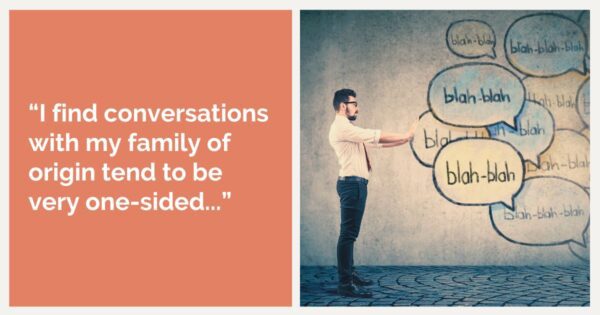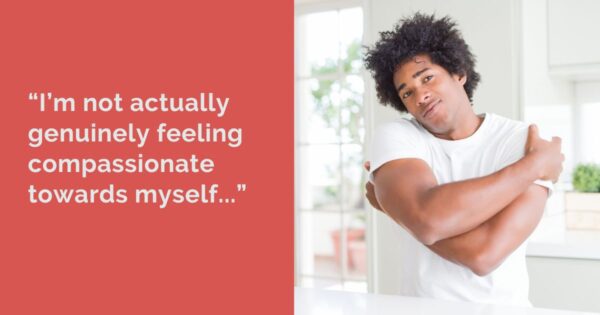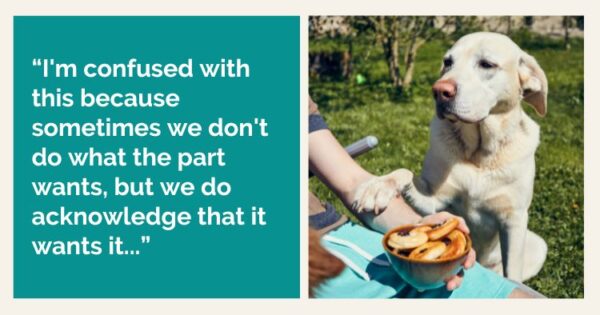Last week in our Weekly Tips I published a question from
Jan, who wanted to know how to offer Focusing to his
teenage daughter, to help with the sometimes overwhelming
emotions of her adolescence. I responded by saying that we
need to be cautious of the impulse to help our children,
perhaps instead Focusing on our own feelings of how hard it
is to watch them go through this rollercoaster time. To just
listen, and not offer Focusing until THEY ask.
A number of you responded!
~~~~~~~~~~~~~~~~~~~~~~~~~~~~~~~~~~~~~~~~~~
"Thanks for listening!"
~~~~~~~~~~~~~~~~~~~~~~~~~~~~~~~~~~~~~~~~~~
Chris Honde, a Focusing teacher in Chicago, gave me
permission to print her response:
I wanted to second what you said to Jan about just
LISTENING to our children, and share an experience of mine.
Shortly after I had learned Focusing, I was visiting one of my
daughters with whom I had always had a somewhat stormy
relationship. It seemed to me that she always saw the
shortcomings in others, but not in herself, and so my usual
responses were things like "Well, but, I can see X's point of
view too," or "Well, you do the same thing, you know," etc.
Completely unhelpful and just bound to rile her up even more
and distance her from me.
But this time was different. Having learned Focusing and
practiced a new kind of listening, I just sat there and
basically reflected all her complaints about her partner. Of
course my own inner voice was saying all the old stuff, but I
didn't say it out loud, just kept listening and reflecting. And
after about half an hour (which seemed like forever!), an
amazing thing happened: she herself started to say all the
things my inner voice would have wanted to say to her, like
"Well, I can see X's point of view, it must really hurt him
when I say Y" or "Oh, I see that I do this to him too."
Since then, my relationship with all my (young adult)
children has transformed into one where I do about 90%
listening/reflecting and only about 10% suggesting/
commenting, etc. And as that's happened, I've found that
they all reach out to me more--even my son, who, like most
males, I think, has always been pretty reluctant to share
feelings and dilemmas with me. One of my daughters, in
particular, often ends conversations with a heartfelt "Thanks
for listening!"
I still haven't been successful in hooking any of them on
Focusing, but I don't worry about that. From time to time, I
toss Focusing-like comments (about my own process) into the
conversation, and I figure one of these days those might
stimulate an interest, a question, etc. that might lead one or
more of my kids to Focusing.
Thanks, Chris! I couldn't agree more! Let's hear what other
people had to say...
~~~~~~~~~~~~~~~~~~~~~~~~~~~~~~~~~~~~~~~~~~
Listen first...
~~~~~~~~~~~~~~~~~~~~~~~~~~~~~~~~~~~~~~~~~~
Andra wrote with an interesting story that I want to comment
on. She wrote: "I agree that when a child is identified with
and expressing feelings, that listening is the best thing we
can do as parents. But my 13 year old son doesn't talk. Last
night he called me in to his room half an hour after he went
to bed because he was really scared about something in the
book he was reading. He wanted help to not be so
overwhelmed by his fear so he could get to sleep. I
suggested he talk to the part of himself that was scared in a
reassuring voice and gave him words to say that I hoped
would help him identify with a part of himself that was
outside the feeling. This was a new concept to him, but I
think he tried it, and I didn't hear from him again. It's not
Focusing, but I feel that it uses a skill that Focusing depends
on, which I can't quite name."
Dear Andra,
First I want to appreciate you and your son,
him for asking and you for offering something that clearly
helped him. Good!
Then I want to say what I might have
added to what you did, to make it more Focusing-like. In
addition to talking to the scared part inside, how about listening
to it?
"OK sweetie, here's what I do when I have a scared feeling that
won't let me sleep. Is there a place in your body where you're
feeling that the most?" ("My stomach.") "OK, so how about just
putting a hand there on your stomach, like you're keeping it
company. And then listen to it. Let it tell you what it's so scared
about...."
"And when it tells you what got it so scared, you can say to it
that you hear it. And you're saying that to it in a nice, calm
tone of voice, right? Because you can tell that it needs you to
do that."
"Does that feel like something you want to try
right now, with me here, or would you like me to say goodnight
so you can try it yourself?"
(There's a group called HeartMath that has had great success
having heart patients talk to their hearts. But every time I hear
their stuff, I keep wondering, What about listening to
the heart?)
And there was one more interesting response to last week
that I wanted to share with you. Verena wrote: "To a
daughter asking for advice about giving her mother Focusing
insights your answer would most likely be the same."
True! Good point! We are surrounded by people who look
like they need our help, from our parents to our spouses and
on out from there. But until they explicitly ask for that help,
offering our listening ear is going to be a better idea.
Listen first... for about five different reasons:
* listening embodies respect for the other person's
autonomy
* listening keeps you connected with their process
* listening keeps you humble--what you thought was true
turns out to be something else, if you listen a minute
* listening lets them find their own way
* listening offers a clear open space within which the
person's own life-forward direction emerges.
What a gift!

Get helpful ways to feel more empowered, calmer, and better able to handle whatever life brings you (in less than 10 minutes a day!).
OUR VISION
The intention of Focusing Resources is to meaningfully contribute to personal, community, and global emotional health, with the understanding that positive emotional health impacts how fairly we treat each other, how well and quickly we recover from stress and trauma, and how wisely and collaboratively we meet the serious challenges we are all facing.
CONNECT WITH US
Focusing Resources, Inc.
1474 University Ave, #155, Berkeley, CA 94702
T: 510-225-0690 | Email Us
©2024 Focusing Resources, Inc. Photos of Ann and Barbara by: In Her Image Photography & Cia Gould






